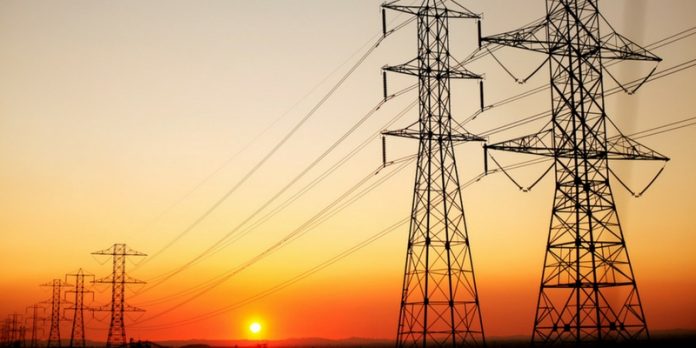ISLAMABAD: The takeover of K-Electric (KE) by Shanghai Electric has apparently hit a snag following the National Electric Power Regulatory Authority’s (NEPRA) decision of a reduction of Rs 2.19 in the power company’s multiyear tariff (MYT) from the existing rates, sources said.
Well-informed sources told Pakistan Today that KE’s takeover deal is in doldrums after NEPRA’s decision which pertains to MYT of the power company (KE). They said that though the Chinese were pushing for a higher tariff, NEPRA, however, approved Rs2.19 cut in MYT of KE from the existing rates. And, reduction in the MYT has apparently been causing the delay in the takeover of KE, said sources.
“KE’s takeover by Shanghai Electric from Abraaj Group might take more time as certain changes will be made in the agreement, following NEPRA’s decision of reduction in MYT of KE against the demand of the Chinese,” said sources.
In October 2016, Abraaj Group announced that KES Power, owned by the group, entered into an agreement to divest its 66.4 per cent shareholding in K-Electric to Shanghai Electric Power Company Limited for a consideration of $1.77 billion.
According to the shareholding breakups, government holds 24.36 per cent stake in K-Electric, followed by foreign shareholders (3.09 per cent), local public (2.69 per cent), mutual funds (1.67 per cent), financial institutions, insurance Takaful, Modarabas and pension funds (1.48 per cent), others (0.18 per cent) and public-sector companies and corporations (0.13 per cent).
An official source in the Power Division said that negotiations are still in the process over the KE deal between Shanghai Electric and Abraaj Group. They said Shanghai Electric has raised some issues with ministry after NEPRA decision pertain to MYT of KE. And, next government is likely to take a final decision regarding the sale of K-Electric.
It is relevant to mention here that earlier, K-Electric demanded a tariff increase of up to Rs15.57 per unit for operational sustainability. NEPRA, however, turned down the request, fixing the tariff at Rs12.07 per unit in March 2017. K-Electric filed a review petition and after conducting hearings, the regulator increased the tariff to Rs12.7706 per unit in October 2017. Subsequently, the ministry of energy recommended the tariff back to NEPRA for reconsideration. In December last year, the authority conducted a hearing on December 5, 2017, in this regard.
Rejecting K-Electric demand, the NEPRA notified new MYT of Rs12.81/kWh and the newly announced MYT by NEPRA would be effctive for the period commencing from July 2016 to June 30th, 2030.
In its decision, the regulator described that KE wanted to follow the old MYT framework for the next 10 years, but with an increase of around Rs0.66 per kWh in the tariff from the current tariff of around Rs15.50 per kWh to Rs16.10 per kWh.
But instead of increasing it, NEPRA actually reduced the tariff by Rs2.80 and set the new MYT at Rs12.70 per KWh from July 01, 2016 for the next 7 years.
“On October 09, 2017, the Authority enhanced the MYT to Rs. 12.7706 per kWh on the account of a revised investment plan, load shedding assumption, T and D losses, heat rates, cost of debt and load growth. KE will carry out planned investments worth Rs.355 billion,” described NEPRA.
NEPRA further said that this MYT awarded to KE was an incentive-based tariff. With this, KE was incentivised to earn profits by bringing efficiency and through making investments in its generation, transmission and distribution segments.
To cap any excessive profits and to extend relief to the consumers, a Clawback Mechanism was devised to share its yearly profit above 12 per cent with consumers on the allowed Regulatory Assets Base (RAB).
Under the referred tariff control period (2009-2016), KE turned into a profit making entity, while its performance regulatory benchmarks were not being achieved.
The main reason behind these profits was the due to efficiency gains recorded by the generation segment. The other segments did not show the required level of improvement as required under the previous MYT.
It is worth mentioning that the former government of Pakistan Muslim League-Nawaz (PML-N) has given a security clearance to a proposed sale of K-Electric by its existing Dubai-based owner to a Chinese company. Even, former Prime Minister Shahid Khaqan Abbasi considered it a rare opportunity that one of the world’s biggest company was interested in buying controlling stake in K-Electric.
Chairing a meeting of Cabinet Committee on Energy (CCE) held to discuss issues relating to K-Electric, PM Abbasi stated that it was a rare opportunity that one of the world’s best and biggest company was interested in buying controlling stake in K-Electric. He said no investor will venture in such investment until and unless there are reasonable prospects of good returns. And, in case the reported deal of sale of K-Electric does not materialise, there is an imminent possibility that the K-Electric will be in dire crisis, said ex-PM Abbasi.
“In such a scenario, the government will be left with no alternative except dolling out bailout packages for K-Electric in order to ensure the continuous supply of power to Karachi. Hence, there was an urgent need for an early decision by NEPRA on the review request filed by Power Division,” said former PM Abbasi while presiding over a meeting of CCE held on April 23, 2018.
























